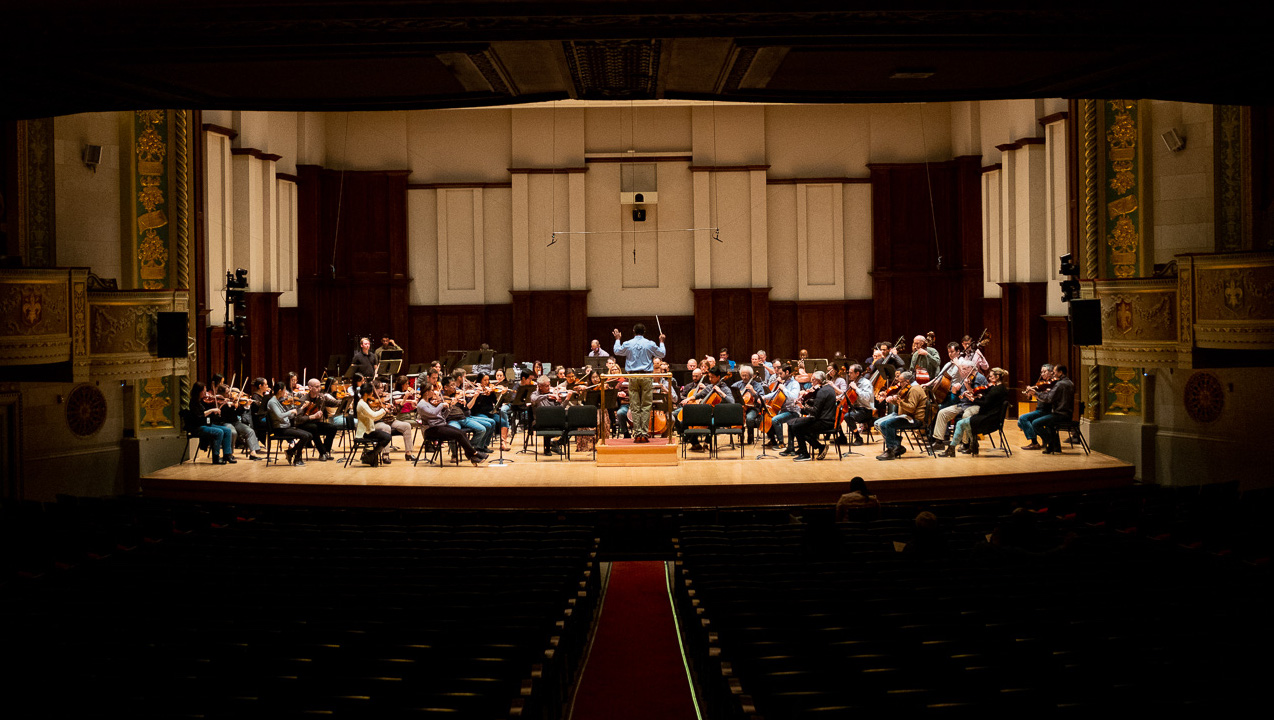The DSO Goes Digital: Online Performances May Become New Norm After COVID-19
As arts institutions shift programming online during a shutdown of public activities during the COVID-19 pandemic, CultureShift’s Ryan Patrick Hooper explores how this is reshaping entertainment for the future.

For many people, looking at a Van Gogh painting on your phone doesn’t pack the same punch as seeing it in person.
It’s one of the issues that museums and arts institutions are facing as they close to the public during the COVID-19 outbreak.
The Detroit Institute of Arts is closed. So is the Henry Ford Museum of American Innovation in Dearborn.
“Normally when there’s a crisis, the first thing that happens is the musicians come out and play. The horrible thing about this one is that we’ve been silenced in a way.” – Anne Parsons, Detroit Symphony Orchestra
The DSO, one of the oldest orchestras in the country, had to cancel a string of performances, but is now finding a new way deliver for its audience.
Nearly a decade ago, the DSO was one of the first symphonies to start live streaming its performances online. That collection became DSO Replay, basically a Netflix for classical music fans. While the service normally costs $50 a year to use, now anyone can use it for free during the COVID-19 pandemic.
Trusted, accurate, up-to-date
WDET is here to keep you informed on essential information, news and resources related to COVID-19.
This is a stressful, insecure time for many. So it’s more important than ever for you, our listeners and readers, who are able to donate to keep supporting WDET’s mission. Please make a gift today.

“You get a lot of choices,” says Anne Parsons, director and president of the Detroit Symphony Orchestra. “We’ve organized by the composers name. If you know you’re a Brahms freak and you just want to listen to Brahms, you just put that in there.”
The DSO says it saw thousands of people from around the world take advantage of the service once it became free — potentially opening up classical music to people who weren’t already fans.
It’s part of a new reality of American life that arts and culture events normally experienced in person are moving online.
With schools around the state closed, and many people practicing social distancing or self-quarantining, artists and institutions around the country are trying to bring you those same experiences in your living room. From a hard rock band in Pittsburgh, Penn., turning a cancelled 1,500-person homecoming show into an 80,000 view Twitch live stream, to Neil Young playing for 200,000 viewers online at Sen. Bernie Sanders digital rally Monday night, the current day reality may be a sign of how we’ll experience art and entertainment in the future.
